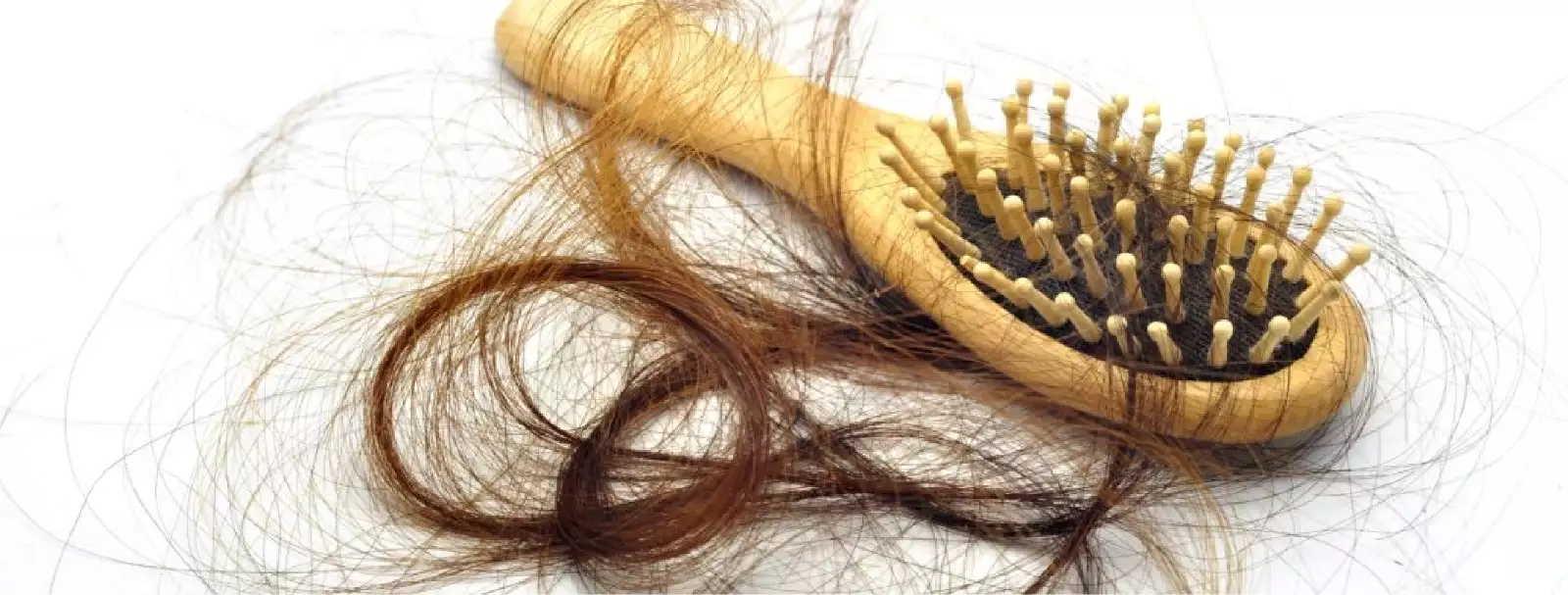The Causes of Hair Loss After Bariatric Surgery

The Causes of Hair Loss After Bariatric Surgery
The answer to the questions of the cause of hair loss after bariatric surgery and how to prevent hair loss on our page. Click now for detailed information!
Bariatric surgery is a weight loss surgery that helps patients achieve significant weight loss by reducing the size of the stomach. While the bariatric surgery can lead to many health benefits, it can also cause some side effects, including hair loss. Hair loss after bariatric surgery is a common occurrence that affects many patients who undergo the procedure. What causes hair loss after bariatric surgery is not entirely clear, but there are several factors that may contribute to this condition such as nutritional deficiencies, stress, and hormonal changes.
Hair loss after bariatric surgery typically occurs 3 to 6 months after the procedure, and it may continue for up to a year. The amount of hair loss can vary from person to person, but it is usually temporary, and the hair will grow back once the body adjusts to the changes.
What is bariatric surgery?
Bariatric surgery, also known as weight loss surgery, is a surgical procedure that helps people who are severely obese lose weight. The surgery works by reducing the size of the stomach, which limits the amount of food a person can eat and helps them feel full more quickly.
Bariatric surgery is typically recommended for people who have a BMI of 40 or higher, or a BMI of 35 or higher with obesity-related health problems, such as type 2 diabetes, high blood pressure, or sleep apnea. The bariatric surgery is intended to help people lose a significant amount of weight and improve their overall health.
While bariatric surgery can be an effective way to achieve significant weight loss and improve health, it is important to note that it is a major surgical procedure and should be considered carefully. There are potential risks and complications associated with the surgery, including bleeding, infection, blood clots, and reactions to anesthesia. Additionally, bariatric surgery requires significant lifestyle changes, including changes to diet and exercise, and a commitment to ongoing medical follow-up to ensure the best outcomes.
Overall, bariatric surgery is a tool that can help people who are severely obese achieve significant weight loss and improve their overall health. However, it is important to approach the decision with careful consideration and to work closely with a healthcare provider to determine if bariatric surgery is the best option for individual needs and goals.
What are The Types of Bariatric Surgery?
There are several types of bariatric surgery, including gastric bypass surgery, sleeve
gastrectomy, adjustable gastric banding, and biliopancreatic diversion with duodenal switch. Each type of bariatric surgery has its own risks and benefits, and the best choice depends on individual needs and goals.
Types of Bariatric Surgery
1. Gastric bypass surgery: The first one of the bariatric surgery types, involves creating a small stomach pouch and rerouting the small intestine to connect to the pouch. The smaller stomach size and rerouting of the small intestine result in less food intake and reduced calorie absorption.
2. Sleeve gastrectomy: The second one of the bariatric surgery types, involves removing a portion of the stomach to create a smaller stomach pouch, which limits food intake and helps the person feel full more quickly.
3. Adjustable gastric banding: The third one of the bariatric surgery types, involves placing a band around the upper portion of the stomach to create a smaller stomach pouch, which limits food intake and helps the person feel full more quickly. The band can be adjusted to control the amount of food that can be eaten.
4. Biliopancreatic diversion with duodenal switch: The fourt one of the bariatric surgery types, involves removing a portion of the stomach and rerouting the small intestine to reduce food intake and calorie absorption. This surgery is typically reserved for people with a BMI greater than 50 or those with severe obesity-related health problems.
What are The Causes of Hair Loss After Bariatric Surgery?
Bariatric surgery has major health benefits for people dealing with obesity and related health problems. However, some side effects may occur following the procedure such as hair loss. So, what causes hair loss after bariatric surgery:
1. Nutritional deficiencies: After bariatric surgery, the body may have difficulty absorbing nutrients, such as iron, zinc, and biotin, which are essential for healthy hair growth. Deficiencies in these nutrients can cause hair to become thin and brittle, leading to hair loss.
2. Rapid weight loss: Rapid weight loss after bariatric surgery can put stress on the body, which can lead to hair loss. The body may prioritize other essential functions, such as maintaining organ function, over hair growth, leading to hair loss.
3. Hormonal changes: Bariatric surgery can cause hormonal changes in the body, which can contribute to hair loss. Changes in estrogen, testosterone, and thyroid hormones can all affect hair growth and lead to hair loss.
4. Physical stress: Bariatric surgery is a major surgery that can put a lot of physical stress on the body. The stress can cause the hair follicles to enter the resting phase, leading to hair loss.
5. Psychological stress: The emotional and psychological stress of bariatric surgery can also contribute to hair loss. Stress can disrupt the natural hair growth cycle and lead to hair loss.
6. Medications: After bariatric surgery, patients may need to take medications that can cause hair loss as a side effect. Medications, such as blood thinners, anticoagulants, and chemotherapy drugs, can all cause hair loss.
It is important to note that hair loss after bariatric surgery is typically temporary and can resolve on its own with time. Also transplantation is an alternative. However, it is important to address the underlying causes of hair loss to promote healthy hair growth. Patients should work with their healthcare provider to ensure that they are getting the necessary nutrients and supplements to support healthy hair growth. Additionally, patients may benefit from stress-reducing activities, such as exercise, meditation, or counseling, to help manage the emotional and physical stress of bariatric surgery. Finally, patients should discuss any medications they are taking with their healthcare provider and explore alternatives if hair loss is a concern.
How to Prevent Hair Loss After Bariatric Surgery?
Hair loss is a common side effect of bariatric surgery, but there are steps that can be taken to help prevent or minimize it. Here are some ways you can learn how to stop hair loss after bariatric surgery:
1. Follow a balanced diet: As nutritional deficiency is commonly what causes hair loss after bariatric surgery, consuming a well-balanced diet that includes adequate amounts of protein, vitamins, and minerals is crucial for healthy hair growth. After bariatric surgery, it's important to work with a registered dietitian to create a nutrition plan that meets your individual needs.
2. Take supplements: One other way of how to prevent hair loss after bariatric surgery, is taking supplements, such as biotin, iron, and vitamin B12, which can help support hair growth, as your body may not absorb all of the nutrients it needs from food alone.
3. Be gentle with your hair: Treating the hair unkindly is what causes hair loss as well. Avoid excessive brushing, combing, or heat styling your hair. Use a wide-toothed comb or a soft-bristled brush and let your hair air dry as much as possible.
4. Avoid harsh chemicals: Excessive use of various chemicals on hair is what causes hair loss as well. Try to avoid using harsh chemicals on your hair, such as hair dyes, perms, or relaxers. If you must use them, following your bariatric surgery, wait until your hair has fully regrown and test a small area first.
5. Manage stress: Stress can contribute to hair loss, so it's important to manage your stress levels. Practice relaxation techniques such as meditation, deep breathing, or yoga.
6. Stay hydrated: Drinking enough water is essential for overall health, including healthy hair growth. Make sure to drink enough water throughout the day to help keep your hair hydrated.
7. Be patient: What causes hair loss after bariatric surgery is manageable and typically temporary and the hair will grow back once the body adjusts to the changes. Be patient and continue to take care of your body with a healthy diet and lifestyle habits.
It's important to remember that hair loss after bariatric surgery is a normal and expected side effect, and it should not deter anyone from pursuing weight loss surgery if it is recommended by a healthcare provider. With proper care and management, hair loss after bariatric surgery can be minimized and regrowth can occur.





